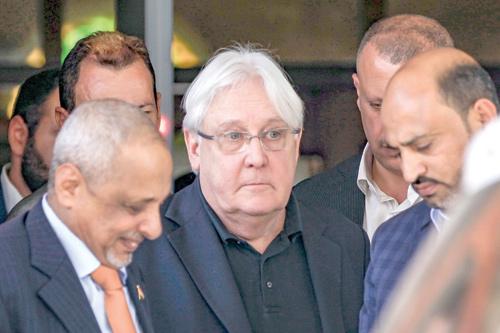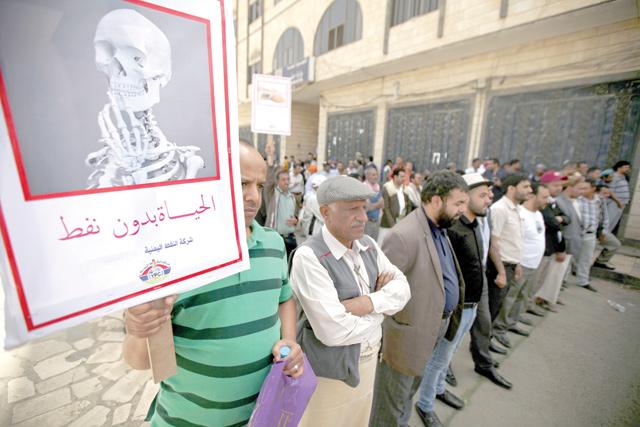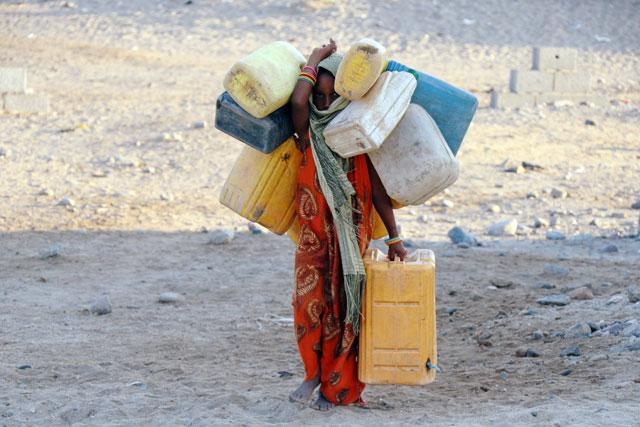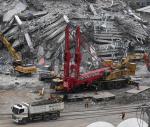You are here
UN Security Council in talks on saving Yemen truce deal
By AFP - Mar 14,2019 - Last updated at Mar 14,2019

In this file photo taken on February 11, Martin Griffiths (centre), the UN special envoy for Yemen, arrives at Sanaa international airport (AFP photo)
UNITED NATIONS, United States — The United Nations Security Council met behind closed doors Wednesday in a bid to salvage a stalled truce deal seen as crucial to diplomatic efforts to end the war.
Yemen's government and its Saudi and Emirati allies agreed in talks with Houthi rebels nearly a month ago to begin a redeployment of forces from the flashpoint city of Hodeida, but nothing has happened on the ground.
UN Envoy Martin Griffiths told the council that he was “still working with the parties to make the redeployment in Hodeida a reality”, UN spokesman Stephane Dujarric told reporters.
The redeployment was agreed in December under a ceasefire deal reached in Sweden seen as a breakthrough toward ending the devastating war that has pushed Yemen to the brink of famine.
Details of a two-stage pullback from Hodeida city and its ports were finalised during a meeting on February 17, marking the first concrete step toward de-escalation.
UN diplomats said the Houthis were refusing to pull away from the ports of Saleef and Ras Issa as agreed as part of the first stage due to fears that forces linked to the Saudi-led coalition will move in to take over those facilities.
“It’s clear that one party has more problems than the other at the moment, but this tends to swing around,” British Ambassador Karen Pierce told reporters after the meeting.
General Michael Lollesgaard, who also briefed the council as head of a newly-created UN mission to monitor the redeployment from Hodeida, will continue to press for action on the ground, diplomats said.
The council will meet again on Tuesday to take stock and consider next steps if no progress is made.
Fragile agreement
Diplomats from Britain and other European countries played down worries that the agreement on Hodeida was unraveling.
“I wouldn’t say it was in more trouble than we expected. I think we have always known it was fragile,” said Pierce, adding that a lack of trust among the sides was hampering progress.
Ahead of the council meeting, Griffiths met with ambassadors of permanent council members Britain, China, France, Russia and the United States.
On Tuesday, the ambassadors of the P5 in Yemen said they were “extremely concerned” that agreements reached in Stockholm had not been implemented and expressed support for UN efforts to “secure the earliest possible implementation of the arrangements” for redeploying forces from the ports and city of Hodeida.
The ambassadors said in a joint statement that the pullback should begin “without further delay and without seeking to exploit the redeployments by the other side”.
Earlier this week, 12 children and 10 women were killed by strikes in Yemen’s northern province of Hajjah that left up to 30 people wounded including 14 children, the UN humanitarian coordinator said.
The Saudi-led bombing campaign in Yemen will enter its fifth year later this month, with millions of civilians facing famine.
The conflict has unleashed the world’s worst humanitarian conflict.
Related Articles
UNITED NATIONS, United States — Yemen's government and Houthi rebels have accepted a detailed plan for a much-delayed pullback from the flas
UNITED NATIONS, United States — The United Nations intends to convene peace talks on Yemen soon after receiving firm assurances from the par
UNITED NATIONS, United States — The United Nations will put forward a new plan for the pullback of forces from Yemen's flashpoint city of Ho


















